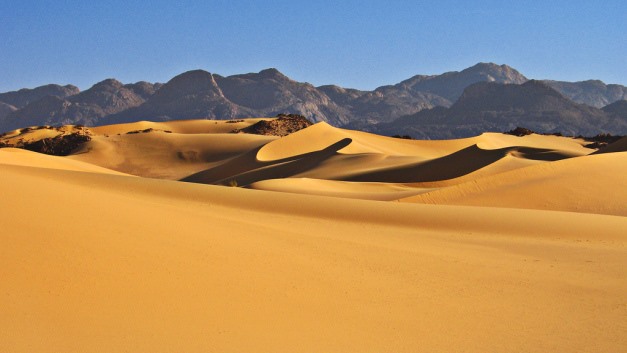 World
World

At least 44 Libya-bound migrants, including women and babies, died of thirst after their vehicle broke down in the scorching Sahara desert of northern Niger, local officials said on Thursday.
 |
| Sahara desert. Photo: morealtitude.wordpress.com |
NIAMEY — At least 44 Libya-bound migrants, including women and babies, died of thirst after their vehicle broke down in the scorching Sahara desert of northern Niger, local officials said on Thursday.
"The number of migrants who died in the desert is 44 for now," said Rhissa Feltou, the mayor of Agadez, a remote town on the edge of the Sahara that has become the smuggling capital of Africa.
A security source who asked not to be named said "the sub-Saharan migrants, including babies and women, died of thirst because their vehicle broke down".
"There were six survivors who were rescued by the army in the heart of the desert near Achegour," the Agadez mayor said.
A humanitarian source said five of them were from Ghana and one was from Nigeria.
The arid dusty town in central Niger is a major transit point for migrants seeking work in Libya or Algeria or trying to reach the sea to sail to Europe.
Last year, the International Organization for Migration (IOM) recorded 335,000 migrants heading northwards out of Niger.
Many perish while trying to cross the desert in crammed pick-up trucks with often meagre provisions of water as jerrycans carrying fuel take priority.
To protect themselves from the sand and sun, the migrants cover up from head to toe, most wearing hoods, sunglasses, jackets and gloves.
Temperatures in Agadez currently hover around 40 degrees Celsius but have hit almost 50 degrees in the past.
The Red Cross, which said "at least 44 migrants have died", dispatched a team to the site "to gather information" on the circumstances.
Rape, kidnappings common
The 50km trip from Agadez to the Libyan border takes between two and three days with only very short petrol and toilet stops on the way.
In early May, eight migrants from Niger, five of them children, were found dead in the desert while heading to Algeria.
Also in May, soldiers on patrol in northern Niger rescued around 40 migrants from various west African countries who had been abandoned in the Sahara by smugglers they had paid to get to Libya.
The group included people from The Gambia, Nigeria, Guinea, Senegal and Niger, all of them hoping to reach the Libyan coast and from there cross the Mediterranean to Europe.
Many migrants are kidnapped by traffickers or bandits and often subjected to sexual and other abuse.
Hunger, fever, fractured limbs and dehydration are also common problems.
Accidents are frequent on the rough tracks used by smugglers who drive for hours without stopping across the desert and the dunes.
Libya has long struggled to control its 5,000km of southern borders with Sudan, Chad and Niger, even before the 2011 uprising that toppled dictator Moamer Kadhafi.
In the chaos that followed, traffickers stepped up their business, with tens of thousands of people each year making the perilous crossing to Italy just some 300km away.
Germany and Italy last month called for an EU mission to be installed on the border between Libya and Niger to reduce the migrant flow.
By mid-April this year, Italy had registered nearly 42,500 migrants coming by sea, 97 per cent of them arriving from Libya. — AFP




